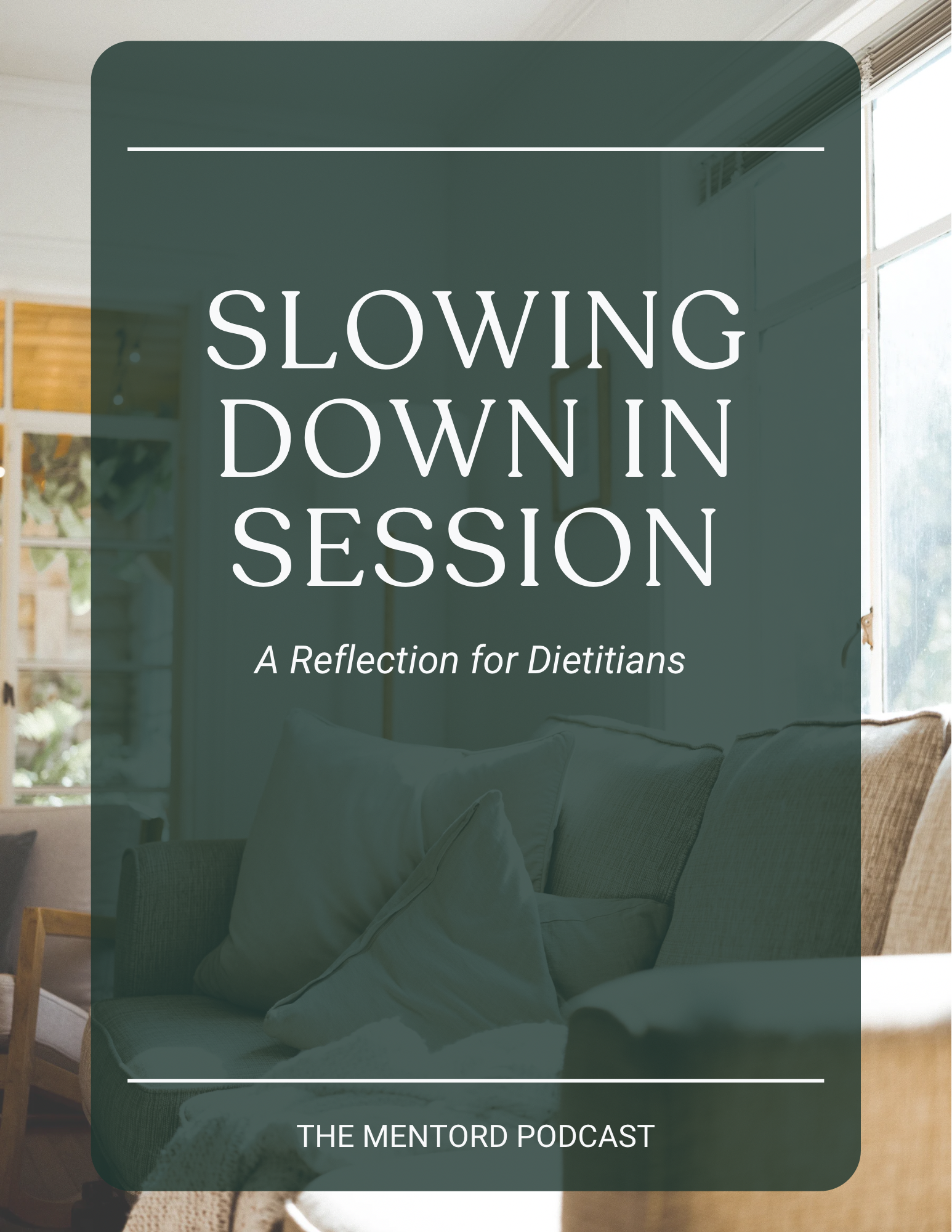You’re Not an ER Doc: Why There Are No Nutrition Emergencies in Your Client Sessions
Ever felt your heart race when a client spirals mid-session, demanding a new meal plan, or when your mind screams, "You have to fix this now"? If you’ve ever left a session questioning if you “did enough” or scrambling to send resources immediately after logging off, you’re not alone.
But here’s the truth: There are no nutrition emergencies.
And letting go of urgency is one of the most profound mindset shifts you can make as a dietitian.
Why Dietitians Feel the Pressure to Fix Everything
From your first nutrition class to your last day in internship, urgency is baked into your training:
Productivity metrics that measure your worth by how many patients you see.
Pressure to deliver clear, measurable outcomes quickly.
Systems telling you your value lies in having the perfect answer.
These experiences are amplified when you step into the world of weight-inclusive and eating disorder care, where clients often arrive with their own urgency: wanting results now, expecting intuitive eating to "work" in a few weeks, or spiraling after a binge or missed meal.
You care deeply about your clients, and your desire to help is real. But when we act on urgency, we often:
Jump to solutions before building safety
Fill silence with information instead of presence
Overstep boundaries by over-functioning
Burn ourselves out in the process
The Cost of Urgency: For You and Your Clients
When we operate from urgency, it often:
Centers us instead of the client’s needs.
Bypasses root issues, addressing symptoms rather than the underlying challenges.
Leads to shame spirals when clients can’t follow plans created in urgency.
Burns us out, making us resentful, exhausted, and questioning our worth.
You became a dietitian to support meaningful, sustainable change—not to perform under constant pressure.
Slowing Down Is the Intervention
Slowing down in session isn’t about giving less value—it’s about providing the right kind of value. It means:
Pausing before jumping in with an answer
Letting silence be a space for reflection
Co-regulating instead of rushing to fix
Trusting that your presence is often more powerful than the perfect resource
When you practice slowness, you create a safe, trauma-informed space where your clients can process at their pace and where you can stay connected to your values and professional integrity.
Practical Strategies to Let Go of Urgency
If you’re ready to start slowing down, here are actionable strategies to try:
Pause before responding when clients express distress or demand immediate action. Take a deep breath and ground yourself.
2. Use reflective language: Instead of offering solutions right away, try:
"That makes sense. Let’s stay with that for a moment."
"It sounds like this feels really urgent for you. What feels most important to explore right now?"
"We don’t need to solve this today. We can take our time."
3. Notice your own triggers: What client situations cause urgency to rise in you? Is it silence? A distressed client? A feeling of not being helpful enough?
4. Set boundaries around communication: You don’t need to respond to client emails immediately. Model the pacing you want to invite into your work.
5. Prepare with intention, not fear: Identify when prep supports grounding vs. when it’s driven by anxiety or proving your worth.
6. Prioritize presence over productivity: Remember, your calm presence is often what your client needs most.
Reflection Questions for Dietitians
When does urgency show up most in my sessions?
What am I afraid will happen if I slow down?
What message do I want to send my clients about change and safety?
What would it feel like to trust the process instead of controlling it?
Take time to journal or discuss these with your supervisor or a colleague. Or use our FREE Downloadable Worksheet!
You Don’t Have to Prove Yourself with Fixes
You are not an ER doc. You are not a firefighter.
Your client’s skipped snack or emotional spiral does not require a siren response. Slowing down doesn’t mean you don’t care—it means you care deeply enough to hold space for safety and real change.
You are allowed to pause. You are allowed to take a breath. You are allowed to trust that your presence is enough.
Ready to Dive Deeper?
Listen to the full series on this topic on The MENTORD Podcast, where we unpack urgency, the fix-it mindset, and how to practice slowness with confidence and care.
If you’re ready to bring this work into your own practice and want personalized support, you can book a mentorship session with Bethany Wheeler, MS, RD, LD to deepen your skills and build confidence in your client work.
You don’t have to do this alone. Let’s practice slowing down—together.




